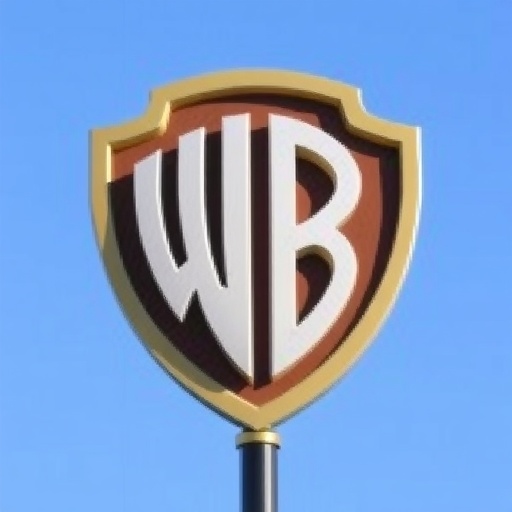Warner Bros. Eyes Potential Sale After Unsolicited Bids Ignite 11% Stock Surge in Entertainment Industry Shake-Up
In a stunning development that’s sending shockwaves through Hollywood, Warner Bros. Discovery has confirmed it’s evaluating a potential sale following a flurry of unsolicited offers from interested parties. The announcement, made late Thursday, propelled the company’s stock to soar more than 11% in after-hours trading, marking one of the most dramatic rallies in the entertainment industry this year. Shares of Warner Bros. Discovery (NASDAQ: WBD) closed at $8.92 earlier in the day but jumped to $9.95 by the end of after-hours, reflecting heightened investor optimism amid ongoing turbulence in the media sector.
- Unsolicited Bids Fuel Speculation on Warner Bros.’ Next Chapter
- Stock Rally Highlights Investor Thirst for Warner Bros. Assets
- Behind the Scenes: Warner Bros.’ Turbulent Path Leading to Sale Talks
- Potential Acquirers Line Up in the Entertainment Industry’s Merger Frenzy
- Implications of a Warner Bros. Sale: Reshaping Hollywood’s Power Dynamics
This move comes at a pivotal moment for Warner Bros., the storied studio behind iconic franchises like Harry Potter, DC Comics, and The Matrix, as it grapples with streaming wars, cord-cutting, and post-pandemic recovery. The unsolicited interest underscores the high stakes in the evolving entertainment landscape, where consolidation is king and legacy players are prime targets for acquisition.
Warner Bros. Discovery CEO David Zaslav emphasized in a statement that the board is committed to maximizing shareholder value, hinting at strategic reviews without committing to any deal. "We are reviewing all opportunities to ensure the best path forward for our company and its stakeholders," Zaslav said. This revelation has analysts buzzing, with many predicting a transformative deal that could reshape content distribution and intellectual property ownership in the digital age.
Unsolicited Bids Fuel Speculation on Warner Bros.’ Next Chapter
The catalyst for this frenzy was a series of unsolicited bids received by Warner Bros. over the past few months, sources close to the matter revealed. While the identities of the bidders remain under wraps, industry insiders point to a mix of private equity firms, tech giants, and rival media conglomerates eyeing Warner Bros.’ vast library of over 100,000 hours of content, including premium assets like HBO’s original programming and Warner Bros. Pictures’ blockbuster slate.
One potential suitor rumored to be in the mix is Apollo Global Management, the private equity powerhouse that has been aggressive in media investments, having previously backed Yahoo and acquired Cox Media Group. Another whisper in the wind involves Amazon, which has been expanding its Prime Video service and could leverage Warner Bros.’ content to bolster its streaming dominance. "These offers are unsolicited for a reason—they see Warner Bros. as undervalued gold in a market ripe for disruption," said media analyst Eric Handler of MKM Partners.
Historically, Warner Bros. has been no stranger to mergers and acquisitions. The 2022 merger of WarnerMedia with Discovery created Warner Bros. Discovery, valued at around $43 billion at the time. However, since then, the company has faced headwinds, including a $9.1 billion writedown on its TV networks in 2022 and ongoing challenges with linear TV decline. The current stock valuation hovers around $21 billion, a fraction of its peak, making it an attractive target for buyers seeking bargains in the entertainment industry.
Financial data underscores the urgency: Warner Bros. reported $41.3 billion in revenue for 2023, but net income plummeted to a $2.7 billion loss, largely due to restructuring costs and streaming investments. Debt stands at $41 billion, adding pressure for a sale that could alleviate balance sheet woes. "Unsolicited bids like these often lead to auctions, and Warner Bros. could fetch a premium if multiple parties compete," noted Ben Swinburne, an analyst at Morgan Stanley.
Stock Rally Highlights Investor Thirst for Warner Bros. Assets
The immediate market reaction was electric. Warner Bros. Discovery’s shares not only surged 11.3% in after-hours trading but also saw pre-market gains pushing toward 15% as Friday dawned. This rally adds over $2.3 billion in market capitalization overnight, a boon for investors who have endured a 50% stock drop since the Warner-Discovery merger.
Trading volume spiked to 12 million shares in the after-hours session, compared to an average daily volume of 25 million, indicating intense interest. Options activity also heated up, with call options for January 2025 expiring at $10 strike seeing a 300% increase in volume. "The stock’s pop is a clear signal that Wall Street believes a sale is not just possible, but probable," observed Laura Martin, senior analyst at New Street Research.
In the broader entertainment industry context, this surge mirrors patterns seen in recent deals like Paramount Global’s negotiations with Skydance Media, where similar rumors drove a 20% stock jump. Warner Bros.’ position is unique, however, given its dual strengths in film, TV, and gaming through subsidiaries like Warner Bros. Games, which generated $4.5 billion in 2023 revenue from hits like Hogwarts Legacy.
Yet, risks loom. Regulatory scrutiny from the FTC and DOJ could complicate any deal, especially if it involves tech behemoths like Amazon or Apple, both of whom have been vocal about content acquisitions. Antitrust concerns in the entertainment industry have intensified post the failed Adobe-Figma merger, with officials wary of media concentration.
- Key Stock Metrics Post-Announcement: Closing price: $8.92; After-hours high: $9.95; 52-week range: $6.64 – $14.76
- Market Cap Impact: Increased by $2.3 billion to approximately $21.5 billion
- PE Ratio: Trading at a forward PE of 8.5, below industry average of 15
Investors are also eyeing Warner Bros.’ cash flow, which improved to $4.5 billion in free cash flow for 2023, providing a cushion for potential divestitures or buybacks if no sale materializes.
Behind the Scenes: Warner Bros.’ Turbulent Path Leading to Sale Talks
To understand the gravity of these sale considerations, one must delve into Warner Bros.’ recent saga. The company, founded in 1923 by the Warner brothers, has been a cornerstone of the entertainment industry, producing over 3,000 films and countless TV series. Its merger with Discovery in 2022 was billed as a streaming powerhouse play, combining HBO Max with Discovery+ to form Max, now boasting 97.6 million subscribers.
However, execution faltered. In 2023, Warner Bros. laid off 1,000 employees amid cost-cutting, and its streaming service reported a $1.1 billion loss. Box office hits like Barbie ($1.4 billion worldwide) and Dune: Part Two ($700 million) provided bright spots, but theatrical revenues dipped 20% year-over-year due to strikes and market saturation.
Internal drama has compounded issues. CEO Zaslav’s decisions, including shelving projects like the Batgirl film and removing films from HBO Max, drew backlash from Hollywood creatives. A 2023 proxy battle with activist investor John Malone highlighted governance rifts, with Malone pushing for more aggressive asset sales.
Quotes from insiders paint a picture of urgency. "Warner Bros. is at a crossroads; the entertainment industry is consolidating, and staying independent might mean getting left behind," said one executive anonymously. Financially, the company’s EBITDA fell to $9.2 billion in 2023 from $11.5 billion in 2022, prompting debt refinancing efforts that bought time but not solutions.
In the gaming arm, Warner Bros. Games struggled with flops like Suicide Squad: Kill the Justice League, leading to a $200 million writedown. Yet, assets like the Mortal Kombat franchise remain lucrative, potentially sweetening any sale package.
- Merger Milestones: April 2022 announcement; November 2022 completion
- Streaming Subscriber Growth: From 76.8 million in 2022 to 97.6 million in 2024
- Major Releases 2023-2024: Oppenheimer ($975M), Aquaman and the Lost Kingdom ($430M)
These challenges have made Warner Bros. a poster child for the entertainment industry’s shift from traditional TV to digital, where Netflix and Disney+ command premium valuations.
Potential Acquirers Line Up in the Entertainment Industry’s Merger Frenzy
As sale talks gain traction, speculation abounds on who might swoop in for Warner Bros. Beyond Apollo and Amazon, Comcast’s NBCUniversal is floated as a logical fit, given synergies with Peacock streaming and Universal Pictures. Sony Pictures, flush with cash from Spider-Man successes, could eye Warner’s DC Comics to bolster its superhero portfolio.
Private equity interest is particularly keen. Firms like Blackstone and KKR have been scouting media deals, attracted by Warner Bros.’ $20 billion in IP value. "A sale to PE could involve breaking up the company—selling film studios separately from networks," predicted analyst Doug Anmuth of J.P. Morgan.
The entertainment industry has seen a wave of such activity: Disney’s $71 billion Fox acquisition in 2019, Warner’s own AT&T spin-off, and ongoing CBS-Viacom reunion. Valuations are key; Warner Bros. trades at 0.5x sales, versus Netflix’s 7x, suggesting room for a 30-50% premium in a bidding war.
Regulatory hurdles aside, international players like Tencent or Reliance Industries (owners of Viacom18) could enter, seeking U.S. footholds. Warner Bros.’ global reach, with 20% of revenue from international markets, makes it appealing for expansion.
Stakeholder reactions vary. The Writers Guild of America expressed concerns over job losses, while SAG-AFTRA welcomed potential stability. Shareholder activism from Vanguard and BlackRock, holding 15% combined, could push for a deal to unlock value.
Implications of a Warner Bros. Sale: Reshaping Hollywood’s Power Dynamics
If a sale proceeds, the ripple effects on the entertainment industry could be profound. A tech acquisition like Amazon’s would accelerate AI integration in content creation, potentially disrupting traditional studios. Conversely, a media peer buyout might consolidate power, reducing competition and raising prices for consumers.
For employees—over 35,000 strong—a deal could mean synergies leading to cuts, but also investment in hits like upcoming Superman (2025) under James Gunn. Streaming wars might cool, with a larger entity challenging Netflix’s 280 million subscribers.
Looking ahead, Warner Bros. faces a strategic pivot. If no sale happens, expect more asset sales, like CNN or regional sports networks, to reduce debt. The board’s next earnings call in May could provide clues, with analysts forecasting $10.2 billion Q1 revenue.
Innovations like Warner Bros.’ VR experiences tied to Ready Player One IP signal future-proofing, but a sale might fast-track these. Ultimately, this saga highlights the entertainment industry’s metamorphosis, where adaptability determines survival. As bids evolve, all eyes are on Warner Bros. to script its next blockbuster move—or become part of someone else’s.
(Note: This article is based on publicly available information and industry analysis as of the announcement date. Developments may evolve rapidly.)








